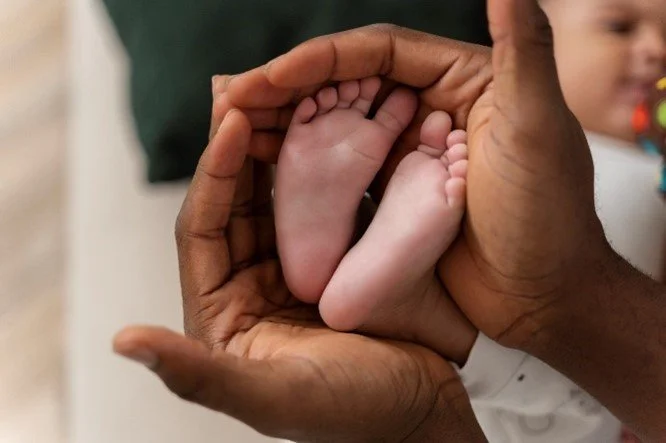Forensic Investigations
“The quality of our lives depends not on whether or not we have conflicts, but on how we respond to them” -Thomas Chum
PARENTAL RESPONSIBILITIES & RIGHTS
Certain disputes with regard to Parental Responsibilities and rights can be mediated. Other disputes or applications will require an investigation and a report which is to be submitted to the Court or Office of the Family Advocate.
What are Parental Responsibilities & Rights?
Section 18(2) of the Children’s Act 38 of 2005 lists full Parental Responsibilities and Rights as:
Care
Contact
Guardianship - Section 18(3) defines Guardianship to include consent or refusal thereof around the child’s property, administrative, contractual, and other legal matters, consent for marriage, adoption, departure or removal from the Republic of South Africa and application for a Passport.
Maintenance
Who has Parental Responsibilities & Rights?
Sections 19 and 20 of the Children’s Act 38 of 2005 describes that biological mothers and married fathers have full Parental Responsibilities & Rights.
A biological father who is not married to the biological mother of a child may acquire full Parental Responsibilities & Rights in respect of the child in terms of Section 21 of the Children’s Act 38 of 2005 based on certain criteria.
Holders of Parental Responsibilities & Rights may, on a voluntary basis in terms of Section 22 of the Children’s Act 38 of 2005 enter into a Parental Responsibilities & Rights Agreement with any other person but it needs to be done in writing in the prescribed format and will only take effect once registered with the Family Advocate or by High Court Order.
Any person having an interest in the Care, well-being or development of a child can apply to specific courts to have Care, and or Contact and or Guardianship assigned to them in terms of Sections 23 and 24 of the Children’s Act 38 of 2005.
CARE & CONTACT DISPUTES / INVESTIGATIONSSIf Mediation fails or when Mediation is not suited due to the nature of the allegations made against any parent, then an investigation into the Best Interest of the children is carried out.
In many high-conflict divorce matters, the disputes are around the Primary Care of the children and or the nature and extent of their contact with their other parent. In the process, various (serious) allegations are often made against each other.
The adversarial system of litigation tends to escalate conflict between the parents. In addition, the litigation process is time-consuming, often resulting in delays in decision-making:
“It is said that the most dominant factor in a child's psychological and social adjustment after a divorce is not necessarily the divorce itself but rather the frequency and intensity of the parental conflict prior to, during and after the divorce… They also suffer when their parents cannot make timely, child-focused decisions on issues that affect them. (De Jong )
Typically, when divorce proceedings are underway or there is a separation where children are involved, for various reasons, disputes arise as to whom is the “better” parent to continue the Care of the children and how or if, the other parent will have contact with the children. In many instances, serious allegations are made against each other.
A Care & Contact Investigation is:
Carried out by a Registered Social Worker with the relevant knowledge and experience.
The Social Worker compiles a report, with recommendations on the findings of the independent investigation. This report may be made available to the Court.
Requested by either or both parents and / or their Attorneys. The Court may also Order for a forensic investigation to be carried out (Court Ordered) or appoint a specific Social Worker (Court Appointed) to carry out such an investigation.
The focus of a Care and or Contact Investigation is to determine the Best Interests of the children as described in Section 7 of the Children’s Act 38 of 2005 and to portray the views of the children as described in Section 10.
POST-DIVORCE DISPUTES
Often, a few months or a few years following the finalization of the divorce, disputes arise around the Care and Contact of the children. The provisions of the Parenting Plan may no longer be applicable due to the developmental phase of the children, new partners becoming part of the lives of the children, material changes in circumstances, relocation of either parent etc .
URGENT APPLICATIONS / INTERIM ARRANGEMENTS
When the divorce is not yet finalized or when parties are unable to reach an agreement, one of the parties may approach the Court on an urgent basis to seek relief. The Court then intervenes and grants an Interim Order pending the finalization of the matter at hand.
Urgent Applications can also be launched when there is an existing Court Order in place such as a Decree of Divorce or Parenting Plan, but which no longer meets the needs of the parties and the children concerned. Disputes may include frustration of Contact, relocation disputes, material change in circumstances etc.
An Interim Court Order can be made by the Court. Such Applications are commonly brought before the Court after the Divorce Summons has been served and there is an urgent dispute over the Primary Residence, Contact arrangements and Maintenance needs of the children. It may also relate to relocation disputes, passport applications and so forth. The Social Worker may be requested or instructed to carry out an investigation regarding interim arrangements in the Best Interests of the children pending the finalization of the matter.



